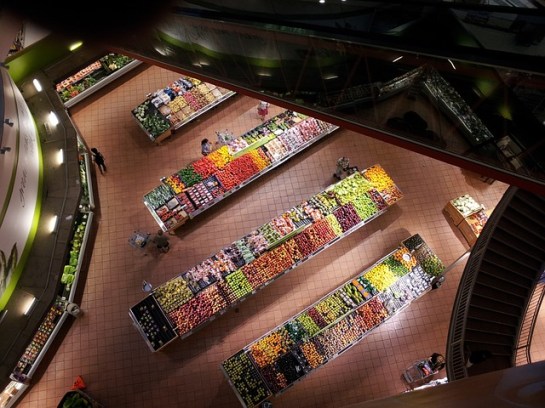
by Carolina Bank Muñoz
“Desde que llegó Walmart el almuerzo ha estado malo. Antes con DYS nos daban una entrada, plato fuerte, y postre. Ahora escasamente nos dan el plato fuerte. Pore so estuvimos en paro un rato y ahora tenemos mejor comida.” Lorena (Walmart worker)
“Since Walmart arrived [In Chile] lunch has been bad. Before, with D&S, they used to give us an appetizer, main dish, and dessert. Now they barely give us a main dish. That’s why we had a job action and now the food has once again improved.” Lorena (Walmart Worker)
To a U.S. audience, it might seem strange that a worker would be complaining about the food they receive in a workplace, especially if that workplace is Walmart. Yet in Chile, large employers like Walmart are required by law to provide workers with lunch or dinner, depending on their shifts. The law however does not specify what kind of meals they have to provide.
Changes to the quality and quantity of food were experienced by workers as a lack of respect. The firm that Walmart bought in 2009, D&S provided higher quality food, and more options. Walmart, in its global quest to reduce costs, tried to offer poorer quality food and less of it, but their strategy backlashed – workers walked out.
How is it that Walmart workers in Chile are so emboldened, especially in contrast to Walmart workers in the U.S. who experience increasingly precarious employment?





